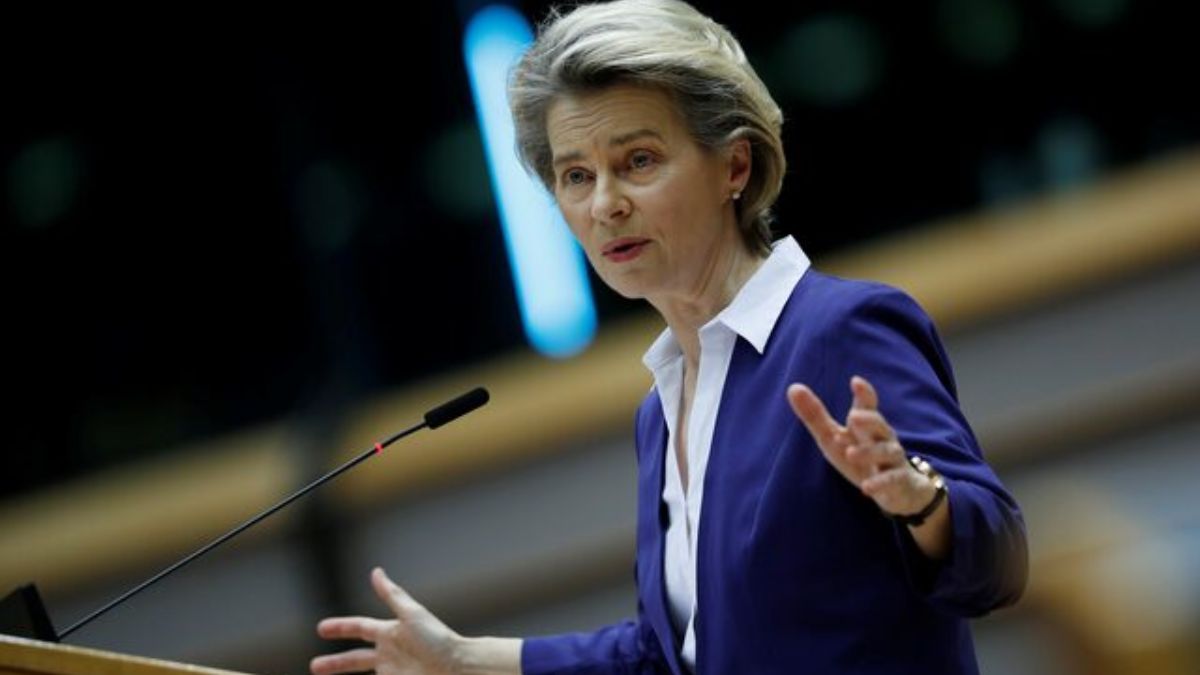European households should be ready to survive for at least 72 hours in the event of a major emergency, the European Commission has said, as it unveiled a sweeping new strategy to boost the bloc’s crisis resilience in the face of mounting geopolitical and environmental risks.
In its EU Preparedness Union Strategy, published on Wednesday (March 26), the Commission said citizens should keep basic supplies on hand– such as food, water, medicine, a flashlight and a power bank– as Europe braces for an era of increasingly severe and unpredictable crises.
“Ready for anything - this must be our new European way of life,” said Hadja Lahbib, the EU commissioner for crisis management, in a post on X (formerly Twitter). A video posted alongside her remarks showed a sample 72-hour emergency kit, containing everything from a radio to cash and essential medications.
The strategy is aimed at improving public awareness and ensuring better coordination across the 27-member bloc in the event of emergencies ranging from floods and wildfires to cyber attacks, pandemics and even armed aggression.
Commission President Ursula von der Leyen said the plan would help equip citizens and authorities alike. “Families living in flood zones should know what to do when the waters rise. Early warning systems can prevent regions hit by wildfires from losing precious time,” she said.
From wildfires to warfare
The strategy calls for action on multiple fronts: enhancing early warning systems, ensuring the continuity of essential services like drinking water and healthcare, and bolstering EU-wide stockpiles of critical goods.
As part of the action plan, the Commission will now “develop guidelines to reach a population self-sufficiency of minimum 72 hours.” A new “EU Preparedness Day” has also been proposed to raise awareness, while schools may be encouraged to include crisis readiness in their curriculums.
Impact Shorts
More ShortsThe push follows last year’s report by former Finnish president Sauli Niinistö, a special adviser to von der Leyen, which found there was no “clear plan” for how the EU would respond to military aggression against one of its members. While the bloc has no direct powers over civil or military emergency services, the Commission is seeking to lay the groundwork for a more joined-up response.
“We must prepare for large-scale, cross-sectoral incidents and crises, including the possibility of armed aggression, affecting one or more member states,” the strategy document states.
Northern Europe leads the way
Some EU countries have already taken national steps to boost preparedness. Sweden advises households to maintain supplies of water, non-perishable food, blankets and alternative heating sources, as well as battery-powered radios. Norway has gone further, recommending iodine tablets in case of nuclear emergencies.
In Germany, new legislation will require future homes to include safe shelters, while citizens are being encouraged to adapt basements or garages as emergency bunkers. Poland has already introduced such requirements for new buildings.
Despite these measures, the Commission warns that Europe still lacks a truly coordinated response—and that climate change, geopolitical instability and technological threats are exposing dangerous gaps.
While the strategy is still in its early stages, it marks a significant shift in tone for the EU, signalling an acceptance that citizens may increasingly need to rely on themselves in the critical first hours of a crisis.
And for many, that may mean packing a go-bag, charging a power bank, and thinking the unthinkable.
With inputs from agencies


)

)
)
)
)
)
)
)
)



